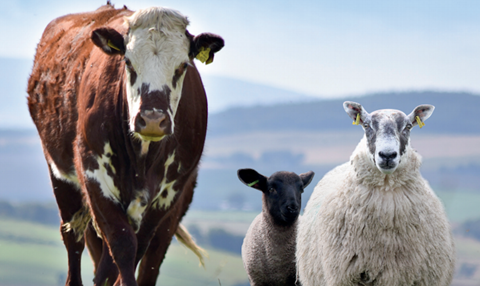Quality Meat Scotland (QMS) has launched a series of new 'Sustainable Red Meat Action Groups' aimed at livestock farmers who are keen to understand the relationship between carbon, meat production and profit.

Pasture-based livestock production will be at the core of these new groups along with benchmarking farm performance and carbon credentials. Facilitated by QMS, there will be seven groups based across Scotland and they will meet four times a year for a three year period.
Group members will have the opportunity to visit members’ farms and hear from technical experts on topics such as grazing management, soil health and alternative livestock production systems. This will allow members to identify potential improvements they could make on their own farms.
Using easy to measure physical benchmarking data, the group members will also be able to highlight the strengths and weaknesses of their livestock enterprise and compare them with other group members.
“The opportunity to benchmark, share experiences and learn from other farmers in the programme is set to be a hugely valuable way to help farmers optimise their businesses.”
Building on the success of the QMS ‘Graze +’ and ‘Better Grazing’ programmes that were aimed at those keen to learn more about improving their grazing management, the Sustainable Red Meat Action Groups will allow for peer-to-peer discussion groups focused on improving individual businesses.
The first meetings of the Sustainable Red Meat Action Groups will be held later in the year virtually or on farm once lockdown has eased, and John Evans, QMS knowledge transfer specialist, is encouraging farmers keen to take grazing management to the next step, and get involved.
“Feedback from farmers who attended the QMS Better Grazing groups indicated that many were interested in looking at benchmarking and carbon audits in more detail. They were also keen to analyse the financial impact of the changes they make,” said Evans.
“The opportunity to benchmark, share experiences and learn from other farmers in the programme is set to be a hugely valuable way to help farmers optimise their businesses.”
Due to the benchmarking element of the initiative, the number of members in each of the new groups will be limited. Group members will also be required to meet some key requirements which include agreeing to undertake a carbon audit and benchmarking, and to share results within the group.
This story was originally published on a previous version of the Meat Management website and so there may be some missing images and formatting issues.















